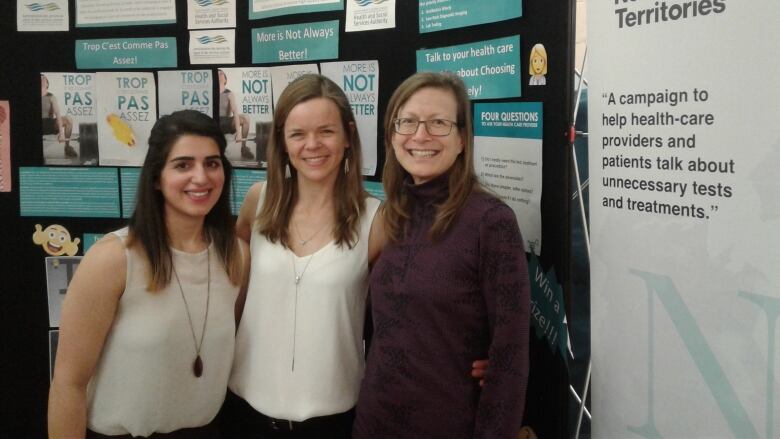New health-care campaign pushes for fewer prescriptions, diagnostic tests
Choosing Wisely estimates up to 30% of care Canadians receive is unnecessary

Health-care providers in the Northwest Territories are trying something new in a bid to weed out what they call excessiveuse of prescriptions and diagnostic testing.
On Feb. 2, the Northwest Territories Health and Social Services Authority launched a campaign called Choosing Wisely to help doctors and patients better communicate about their health-care options.
According to a fact sheet published by Choosing Wisely N.W.T., as much as 30 per cent of health care in Canada is unnecessary.
The over-use of antibiotics is also an issue, according to a recent study. The study, which appeared in an issue of the journal Annals of Internal Medicine last spring,found nearly half of Canadian seniors who see a family doctor about viral infections end up with an antibiotic prescription anyway.
This can cause problems by increasing bacterial resistance to drugs and some antibiotics can cause side effects in patients.
How it works
Shireen Mansouri is a physician and the central area medical director with the territory's health authority. She explained the campaign's goals by using the example of a patient who shows up to a clinic with a viral infection.
Basically, the doctor could send the patient away with a "viral prescription" that walks the patient through a number of steps that will help them feel better, Mansourisaid.
"It just doesn't happen to include antibiotics," she said.
"I'm not saying that you're not sick, I'm not saying that you're not suffering, but antibiotics aren't the solution. Here, there's a whole bunch of other solutions."
The Choosing Wisely campaignan international campaign that began in the U.S. in 2012, but now exists in 20 countriesalso encourage doctors to look at different ways of thinking about diagnostic imaging such as X-rays and MRIs, or lab testing.
"None of our bodies are perfect," explained Sarah Cook, a family doctor and territorial medical director with the health authority.
"All of us will have differences in our bodies that may show up on a test that doesn't look normal, but it's not causing any symptoms, it's not actually the cause of symptoms for which the patient showed up, and it's going to have no long-term effects.
"But as soon as you see an abnormality, that's going to lead to more testing, more testing and more treatment and that can have a lot of side effects."
The campaign offers four questions patients can ask when they visit their doctor:
- Do I really need this test, treatment or procedure?
- What are the downsides?
- Are there simpler or safer options?
- What happens if I do nothing?
Cook stressed that the Choosing Wisely campaign isn't meant to take health care away from people.
"This is about making sure that we reduce the risk of doing things too much," she said.
With files from Brandon Maher












_(720p).jpg)


 OFFICIAL HD MUSIC VIDEO.jpg)
.jpg)



























































































